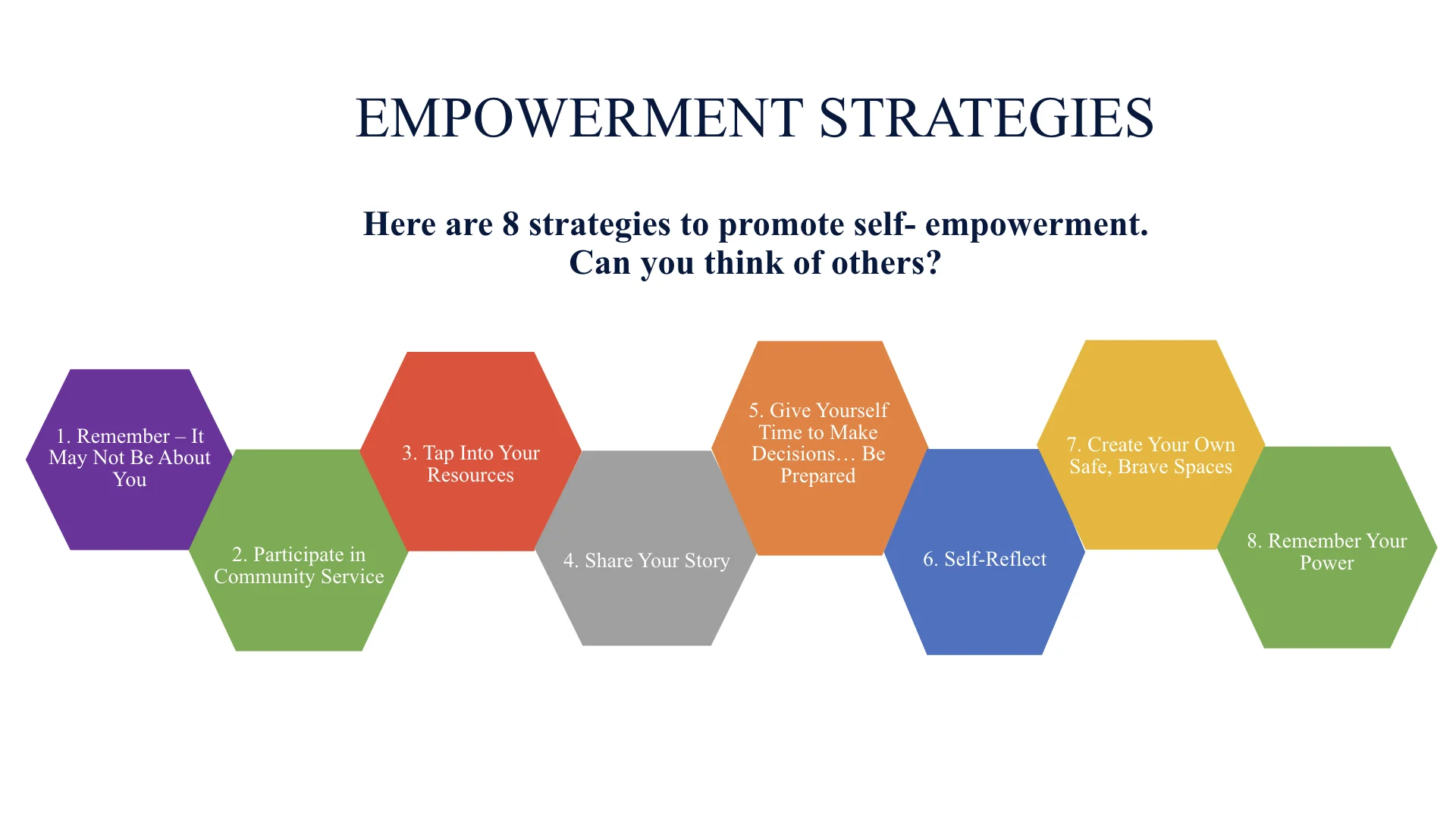VE 3, Everyday Resistance, and Empowerment
Everyday Resistance
Want to engage in every resistance to promote social justice? Here are ten suggestions to get started. Spread the word!
Realize your power, privilege, and maximize your potential
Re-educate yourself, family, and friends about social injustice
Donate money to local, national, and/or international social justice efforts
Volunteer for worthy causes
Become politically active and savvy…always be sure to vote
Focus on the needs of other people
Challenge groupthink or the tendency to follow other people without questioning their motives or possible negative outcomes
Use technology and social media positively
Foster brave spaces
Embrace a linked fate mentality so that your successes are tied to the possible successes of marginalized people
There are many ways to define self-empowerment. It can mean to realize your internal abilities, power, resources, strengths, and growth areas. Self-empowerment increases the chances that you will make positive decisions, set personal and professional goals, and work toward your objectives in life. It will help you push back against negative people, situations, and things that may come your way. Self-empowerment also reflects endeavoring to take control of your own life and making positive choices. The more self-empowered you strive to be, the more self-confidence you tend to have. I think of it as a life-long process that we all should continue to work to build! Here are 8 strategies to promote self- empowerment. Can you think of others?
Unfortunately, some people may attempt to project negativity, biases, and stereotypes your way. Quite often, such negativity is more about them and less about you. Be sure not to internalize other people’s issues.
Helping other people is a great way to take the focus off your problems. Studies show that helping others actually can make you feel better!
Seek out people and programs that can help meet your needs. Look for resources and programs that foster self-empowerment. Also remember the power and resources you already have. You are stronger than you think!
One of the best ways of releasing pain and problems is to talk it out. Talk with people you trust. Tell them your story and listen to their stories.
Take your time when making big decisions. Avoid getting into risky situations that can diminish you and your goals – that goes against self-empowerment. When in doubt, wait and think it through!
Self-reflection means honestly asking yourself why you do, say, think, and act the way you do (or, sometimes, don’t). It means using the wisdom that you have to make decisions that can help you short- and long-term.
Find places where you can be yourself and engage in self-care and self-empowerment. It might be watching your favorite movie at home or listening to music on your phone in the park. Safe-spaces are crucial to self-empowerment. Brave spaces are the next step. They are spaces where you are challenged to talk about and address things you might want to avoid. Brave spaces help us work on our “stuff” (with people we trust).
When we remember our personal and collective abilities, we are most likely to proactively and intentionally live more empowered, positive lives.

